I’m swimming in feelings these days, as I’m sure many of us are. As a counseling intern, I know there are no negative feelings and I spend a significant amount of time helping people name anger, sadness, and guilt. This week, I waded through all of them over the phone with my patients while also trying to manage what was my own.
Perhaps this week, you’ve felt similarly. This week may have brought weariness, grief, and challenge. I’m hopeful that it also brought moments of joy, as well. What are you feeling right now? Take a moment to notice where your thoughts and feelings are. No need to hold judgement about wherever you are, but as we read a familiar, but also emotionally charged passage, pay attention to what feelings show up for you.
Read Mark 15:1-20
When reading this passage for the first time, I found it was so easy to be angry at the crowd that condemns Jesus. At Pilate, who knows this is all a charade grounded in jealousy, but seeks to please a crowd, rather than do the right thing. I felt the anger come, and mingle with the anger that seems to have settled in these days. And then sadness, swift and forceful, as Jesus is beaten and humiliated. Grief as Christ is abused and shamed. The very injustice of a system designed to provide justice.
In that place, it was very easy to connect this story to our world. The systems of supposed justice that crucify Christ on a daily basis, encouraged by the voices of the crowd. It took no effort to get there. And I felt comforted knowing that the Pilates and crowds of the world are the ones in the wrong.
But then.
While I placed blame on these characters, I realized that I could find myself in all the roles in the story. And despite knowing what these weeks are leading to, knowing that we are walking towards death, it wasn’t till now that the heaviness of this season gripped me. I recalled the times that I made a poor choice to please others, like Pilate. I remembered hurt I have caused others, reenacting the crucifixion when I have failed to love. And I went back to the times that I have felt ashamed, and hurt more than I thought I could bear, perhaps just a tiny bit, like Jesus.
Can you place yourself in the story?
Can you imagine yourself as Pilate? Confused by what might be going on, but so concerned about what others think of you that you do what they tell you to.
What comes to mind? What does that feel like?
Can you imagine yourself as a member of the crowd? Swept up in the frenzy, condemning someone, with or without a grasp of what you’re doing. Or even ignoring the other, the Christ among you. The ways we have contributed to suffering, or been a bystander.
What comes to mind? What does that feel like?
Can you imagine Jesus? Betrayed, humiliated, hurt, afraid, confused. Can you imagine yourself in that place?
What comes to mind? What does that feel like?
I think we have all been Pilate, a crowd member, and we have all been Jesus. It strikes me as significant that we can recall and imagine what Jesus felt, as the Christ, and know that we too, carry Christ. To know that God was with him then, and is with us now.
Even as those that embody Christ, we have still been Pilate. We have still been the crowd. And, even so, God is still with us, just as present in the darkness as anywhere else. Rachel Held Evans said, “Even here, in the dark, God is making all things new.” In the dark, we are reminded of the times we have harmed and been harmed. We may have ignored these moments for a long time, we may have forgotten, we may not have realized that was what was happening at the time.
What are you feeling right now? Take a moment to notice where your thoughts and feelings are.
What if we read this story not knowing what was coming in a few weeks? No knowledge of the resurrection. We often call on God to be our lights in the darkness; to brighten our paths. But there is no light here. That doesn’t mean that God is absent, though. God is present, even when there is no light.
May we remember that we are not abandoned when we walk into the dark. May we feel the full companionship and love of God in this season. May we walk courageously toward the Cross knowing we are not alone. Amen.
Britney Yount

